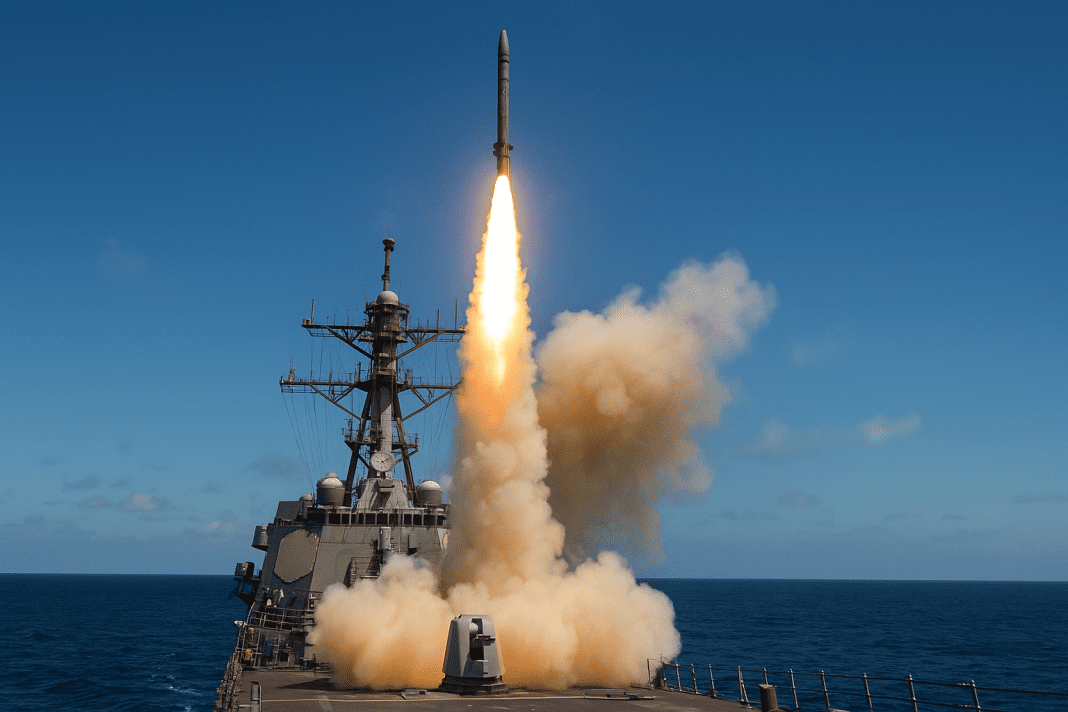Germany is moving forward with one of its largest air-defense purchases in years after the United States approved a possible $3.5 billion sale of advanced missile systems. The step marks a major push by Berlin to strengthen its military at a time when European security remains tense and uncertain. The approval came from the US Defense Security Cooperation Agency, which confirmed that Germany has formally asked to buy hundreds of high-tech missiles and supporting equipment for its future navy ships.
Germany and the Breakdown of the Planned Missile Purchase
The potential sale includes two major missile types: 173 SM-6 Block I missiles and 577 SM-2 Block IIIC missiles, both made by RTX. These advanced systems are designed to defend against aircraft, drones, and certain ballistic missiles, making them key tools for Germany’s national security.
The United States says the missiles will help Germany counter current and future threats, especially when used on its upcoming F127 class ships equipped with the Aegis Weapon System. The DSCA also noted that the purchase would strengthen cooperation between Germany, the US, and other NATO partners during joint missions.
Armenia and Germany move to deepen defense cooperation as part of broader security coordination
Although US approval is an important step, the deal is not final. Germany must still negotiate contract details with the manufacturers, and the US Congress could still block the sale. Meanwhile, American officials continue urging NATO allies to take on more responsibility for Europe’s defense, including increased support for Ukraine.
Growing Pressure on Europe’s Defense
US officials have been urging European NATO members to strengthen their defenses in recent months, saying Europe must be better prepared to handle growing security challenges. This includes raising defense budgets, upgrading equipment, and improving military readiness across the continent.
In June, NATO members agreed to increase their defense spending to 5% of their total economic output. Of that amount, 3.5% must go toward “hard defense,” which covers weapons, air-defense systems, military vehicles, and other essential tools needed for protection.
Germany and France Sound Aviation Alarm: “EU Tariffs Could Cripple Airbus-Boeing Supply Chain”
Germany, which has traditionally spent less on defense than some of its neighbors, is now taking bigger steps to modernize. Its request for billions of dollars in new missile systems is a sign that the country wants to update its equipment and strengthen its role within NATO.
This shift reflects a wider trend across Europe. Many countries are increasing their military budgets and investing in new technology, saying stronger armies and closer cooperation are necessary to keep their citizens and the region safe.
Germany Moves on Military Service Reform
Alongside new military equipment, Germany is also making changes to its military service rules. The country recently announced a major reform that will begin on 1 January 2026. Under the new system, the government will require all men to register for possible military service. This requirement does not mean everyone will serve, but it helps the government quickly identify people it might call up if needed.
Military service in Germany will remain voluntary unless there are not enough volunteers to keep the armed forces running properly. Officials have said that the registration system will help the country prepare for emergencies and ensure that it has enough trained personnel if a crisis occurs.
The decision to reform military service has been discussed for a long time. It reflects Germany’s growing concern about security challenges and the need to keep its military strong and ready. Many analysts believe that the combination of new equipment, higher defense spending, and updated service rules shows how seriously Germany is taking modern threats.
Germany and France sign landmark ODIN’S EYE agreement — Europe steps into a new defense era
These reforms are happening at the same time Germany is requesting new missile systems from the United States. Together, these efforts show that Germany is working to rebuild and modernize its defense structure. The country aims to improve the protection of its territory as well as contribute more effectively to NATO operations.
As discussions continue and negotiations move forward, the potential $3.5 billion missile sale remains one of Germany’s most important steps toward modernizing its defenses. For now, the United States has given its approval, and Germany is preparing for the next stages in the process.

